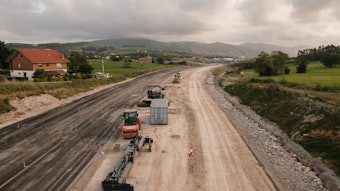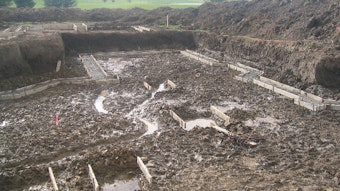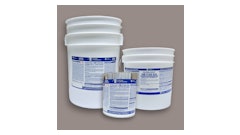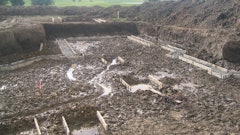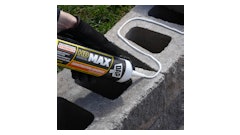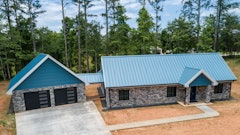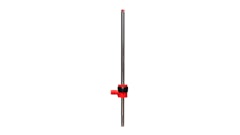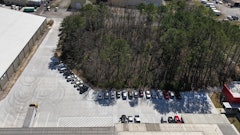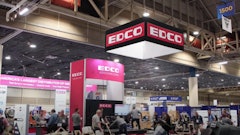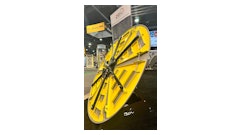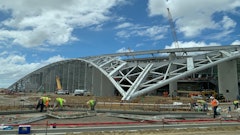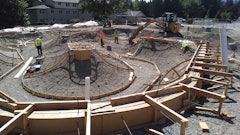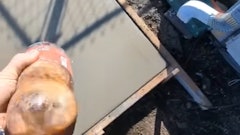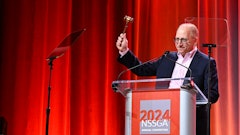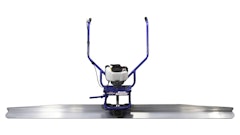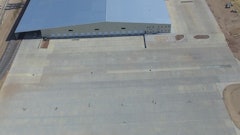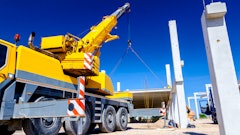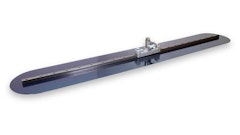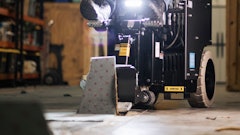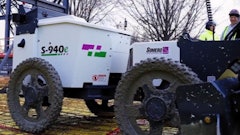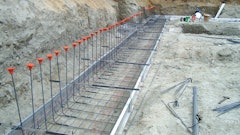
As TCA readies to mark the association's 20-year anniversary, we would like to take this opportunity to celebrate one of our members' accomplishments.
Headquartered in Santa Ana, Calif., Prizio Construction has a significant milestone this year — they constructed their first tilt-up building 50 years ago. Since that time, they have grown to one of the premier tilt-up construction firms in the area, having completed more than 1,000 tilt-up facilities ranging in size from 2,500 to 1 million sq. ft. Read on to learn about how this firm has been able to create success for the past 50 years from Dave Prizio, president of Prizio Construction and past president of TCA.
How did Prizio Construction get started in the tilt-up industry?
Our firm was founded by my grandfather in 1942. Originally, we began work as a residential contractor. My grandfather knew a small developer who had seen a few tilt-up buildings constructed and thought it would be a great idea for small industrial buildings. He asked my grandfather if our firm would be willing to give tilt-up a try. So, knowing little about the method, we embarked on our first tilt-up project, which turned out to be a great success. We were so pleased with the results and the success of tilt-up that eventually we eliminated the residential work completely.
What is the tilt-up market like in your area?
We are fortunate to be in a mature market that thoroughly understands the viability of tilt-up. Nearly every industrial building in our area is still constructed using tilt-up. The expectation is that tilt-up is the method to use. Although tilt-up has been the standard for industrial facilities for quite some time, designers are specifying the method for other end uses. Now, tilt-up is at least considered for nearly every type of building.
How has your firm remained competitive over the years?
Our focus has been to take more challenging and complex jobs. We tend to stay away from simple or generic projects because everyone wants to bid on the easier projects. Some firms are more intimidated by complex jobs, so we find this as a way to differentiate ourselves.
What do you think the biggest advancement has been in the industry?
In recent years, I have seen tilt-up evolve from a very plain, simple type of building to a method that is used for an extremely diverse range of projects. When we first started building with tilt-up, we never envisioned that the method would rise to this level. While the transformation has taken place over time, it is amazing to see the advancements that have occurred since we began using tilt-up for only little boxes. I have also found it interesting to see how creative designers have become with the medium over the years. They are constantly pushing the envelope and challenging contractors with innovative designs.
Where do you think the industry is headed?
Based on the success of the method, I think tilt-up will become more universally accepted across the entire country. While there are several mature markets such as California, Florida and Arizona, the method is gaining popularity in several important areas including the Midwest and Northwest. We will soon begin to see tilt-up as a method commonly used throughout the country. This is partially due to the versatility of tilt-up.
What challenges do we have as an industry that we need to address?
Safety should always be a priority and is something that should constantly be reviewed by members of the industry. The nature of tilt-up requires the lifting of heavy objects that can cause extreme damage to property or people. It is a great advancement that tilt-up is now being used in new markets, but it becomes increasingly important for industry veterans to educate the new players about the proper safety requirements and how to perform quality work. The entire industry could suffer if the quality of the work is poor in new markets.
While it is tempting for me to say that we have it all figured out since we are in such a mature market, I have been in the industry long enough to know that is not the case. Even in our area that has been using tilt-up for buildings for more than 50 years, the method is constantly evolving. It is always a challenge to meet the expectations of today's designers and develop creative ways to execute the design ideas that they generate. As we get better at constructing, they constantly challenge us with more difficult designs.
Ed Sauter is the executive director of the Tilt-Up Concrete Association, an association dedicated to improving the quality and acceptance of site-cast tilt-up construction. For more information about the TCA, visit www.tilt-up.org or call (319) 895-6911.
For more information on Prizio Construction, contact Dave Prizio at (714) 543-3366 or visit www.prizio.com.

